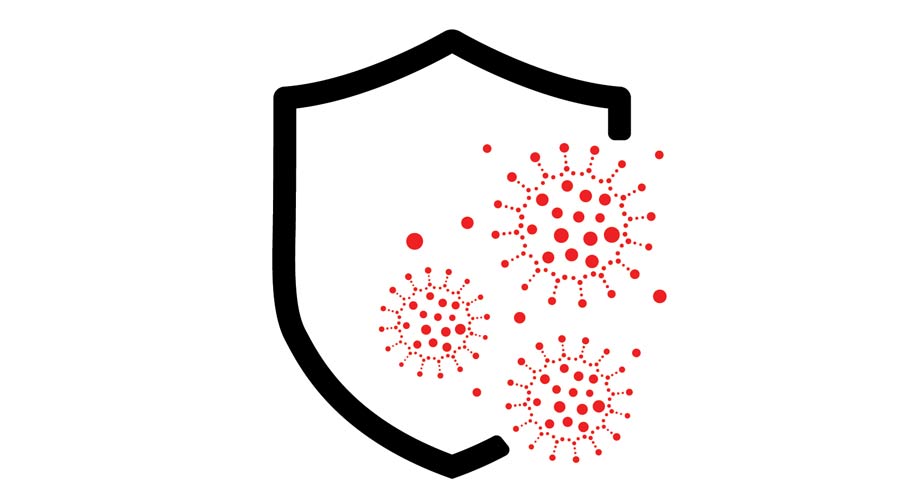
The Centers for Disease Control and Prevention (CDC) announced 5-year awards to five state public health departments. The awards will establish the Pathogen Genomics Centers of Excellence (PGCoE) network. The PGCoE network is intended to foster and improve innovation and technical capacity in pathogen genomics, molecular epidemiology, and bioinformatics to better prevent, control. and respond to microbial threats of public health importance.
The five recipients are the Georgia Department of Public Health, the Minnesota Department of Health, the Massachusetts Department of Public Health, the Virginia Division of Consolidated Laboratory Services, and the Washington State Department of Health, each partnered with one or more academic institutions.
Combined, the PGCOEs will serve as a network to: perform a landscape analysis of gaps, needs and opportunities for genomics in the United States public health system; pilot and implement genomics technologies and applications for public health; and prepare for and respond to infectious disease threats.
“The collaboration with our public health and academic partners to conduct and analyze SARS-CoV-2 genomic data has been critical to our COVID-19 response over the past couple years.” says Dr. Christopher R. Braden, Acting Director, National Center for Emerging and Zoonotic Infectious Diseases. “Building upon that experience by establishing the Pathogen Genomics Centers of Excellence, a collaboration among state health departments and educational institutions, will help us ensure that public health is innovative, robust, and resilient in the future.”
A total of $1.7 billion in funding from the American Rescue Plan (ARP) is helping to support current and future genomic surveillance. These funds include $400 million for innovation, and approximately $90M of this amount will support the PGCoE network over the next 5 years.
“The Centers of Excellence present such an exciting opportunity,” says CAPT (USPHS) Ellie Click, M.D., Ph.D., CDC’s Lead for Extramural Innovation in the Office of Advanced Molecular Detection
. “Over the last few years, the collective response to COVID-19 fostered a huge amount of creativity and collaboration between academia and public health in pathogen genomics. The Centers of Excellence will serve as a platform for ongoing partnership and innovation to inform how we tackle infectious disease threats.”
The network also represents an unprecedented opportunity to expand and deepen collaboration between U.S. public health agencies and universities to form a national resource that will advance genomic surveillance. This goal will be accomplished by funding these five Centers of Excellence:
• The Georgia Department of Public Health will partner with six academic institutions: University of Georgia, Georgia Tech Research Institute, Emory University, Augusta University, Georgia State University, and the University of Texas Health Science Center at Houston.
• The Massachusetts Department of Public Health will partner with the Broad Institute of MIT and Harvard as lead academic partner. Other partners from Massachusetts and Connecticut include Boston University, Mass General Brigham hospital network, Yale University, Fathom Information Design, and Theiagen Genomics. In addition, it will serve as lead CoE for education with Harvard Medical School, the Broad Institute of MIT and Harvard, and the Massachusetts Consortium on Pathogen Readiness (MassCPR).
• The Minnesota Department of Health will have the University of Minnesota and the Mayo Clinic as primary partners
• The Virginia Division of Consolidated Laboratory Services will partner with the Virginia Department of Health, Virginia Commonwealth University, and the University of Virginia.
• The Washington State Department of Health will partner with the University of Washington, Fred Hutchinson Cancer Center, and the Washington Animal Disease Diagnostic Laboratory as well as with Public Health – Seattle & King County.
Since early in the COVID-19 pandemic, CDC has worked with public health laboratories, academic and clinical laboratories, national organizations (e.g., Association of Public Health Laboratories), and large private sector diagnostic networks to establish and expand a comprehensive genomic surveillance effort focused on large-scale sequencing of SARS-CoV-2 and its variants.
Academic partners have mobilized scientific resources and built collaborative partnerships to respond to the COVID-19 pandemic. These partnerships have led to innovative applications of genomic epidemiology in public health. The PGCoE network will build on these collaborations for SARS-CoV-2 and other pathogens of public health concern in the future.

 The Down and Dirty on Cleaning in Virus Season
The Down and Dirty on Cleaning in Virus Season How Surfactant Use is Expanding in Commercial Cleaning
How Surfactant Use is Expanding in Commercial Cleaning